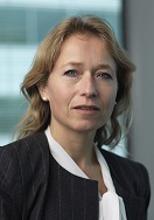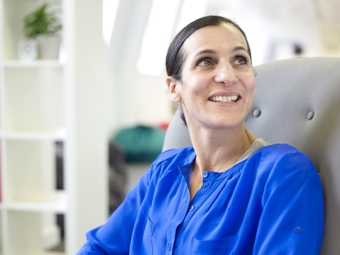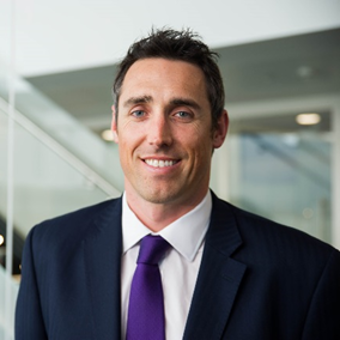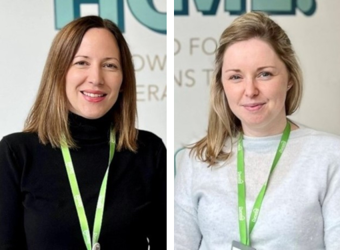Anja IJlstra, general counsel EMEA, CBRE Global Investors…
Anja, firstly – can you tell readers of The Brief a bit about yourself and background?
I graduated in 1995 from Erasmus University in Rotterdam. My training and qualifications took place at the law firm Trenite Van Doorne where I started working in the real estate department and moved to the corporate law department later on. I also worked as an attorney for the law firm Loyens & Loeff. In 2003, I started working in-house with ING Real Estate Investment Management. In 2007, I left the company to work in various interim assignments for different US companies and then came back to ING Real Estate Investment Management in 2011 (now CBRE Global Investors) in the position of general counsel Netherlands. Recently, I have been promoted to general counsel EMEA. I am married and have two children; a 15 year old daughter and a 13 year old son.
You’re now General Counsel (EMEA) at CBRE Global Investors, what does your day to day role entail?
The great thing about my job is that every day is a different day. The business is global so even when my day finishes, there is another office around the world that is starting their day, so I could be on emails 24/7. It does mean that my morning starts with going through a full inbox and I have a constant day of meetings – some scheduled, some not. I can start the day with an agenda that I want to get through and by the end of the day find that the day has been totally different to what I thought I would achieve. It takes a lot of discipline for my day to be proactive as this job definitely veers towards reactive work a lot of the time. This makes the job very interesting but also requires a very flexible attitude to the day.
The property market has been through some pretty turbulent years so how has your role evolved and changed over that time?
Throughout economic downturns, the legal profession always gains in importance and this one has been no exception and possibly even more so. People have been far more critical and negotiations to get deals done have been far more lengthy as people tend to be more risk averse. Throughout these times, you are even more an integral part of the team and a proper business partner.
Many economies in Europe are forging ahead while other regions are still in the early stages of a recovery. What are your predictions for the next few years and where do you think the real growth will be?
The general consensus within this business is that EMEA is recovering but some countries a lot quicker than others. The stronger markets of Germany and the UK over the past few years will continue to strengthen. Furthermore, I see a deal flow occurring again in Southern Europe and the market is moving which is a sign of the initial stages of recovery. As a business, we always look for opportunities in the different stages of the cycle.
What’s next on the cards for CBRE Global Investors in EMEA?
As I said, the business is always looking for new opportunities and expanding. We are focussed on growing our Value Add offer and our retail portfolio is a key area of focus. The company is already a leader in retail and CBRE Global Investors consider this one of its core strengths. We are particularly focussed on working on a co-ordinated approach across the whole portfolio as it is key to understand the ever-changing and developing retail sector.
You’ve worked in both private practice and in-house during your career so what are the key differences between the two?
The biggest difference I think is that when you work in-house on a project, you see it from start to finish, whereas in a law firm you only tend to see a very small part of the project. In-house, I am working in multi-disciplinary teams and the lawyer’s role is only a small part of a bigger picture. When you work in a law firm, it is obviously all about law.
What made you settle on an in-house position?
All of the above! Working in-house means that my job is incredibly varied and I get a chance to work on a combination of corporate, real estate and investment law. This would not happen in a law firm. My role constantly evolves and new aspects are always being added which makes for a very interesting and rewarding job.
What do you think are the main benefits for a company that employs an in-house legal team?
I believe that the greatest benefit of being in-house is that you are an integral part of the team and therefore get all the information required to do your job efficiently. The legal advice that I give can be translated towards the business as I understand the complexities and this means that projects are handled correctly from the very beginning. This not only makes it more efficient but also cost-effective.
Finally, what advice would you give to someone looking to develop their career in-house?
I would say that the best place to start your career would be with a law firm as this is the best education you will get. However, if you are looking to move in-house, I would suggest secondments as a possible avenue to get to work in-house and this gives you some experience to how it feels. Once in-house, your days are incredibly hectic as your client is in the same building and you can’t get away from them! By going on secondment, you get a chance to see whether this vastly different working environment would suit you and you have not made a leap into the unknown without having a door open, back into the law firm you’ve left.












